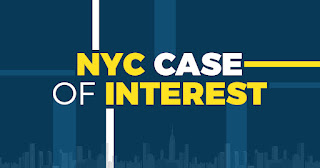The firm is dedicated to making a real difference in the lives of individuals facing discrimination and retaliation in schools, workplaces, and housing. Our litigation practice serves as a powerful tool to stand up for those whose rights have been violated. By joining our team, you will immerse yourself in a purpose-driven environment where you can actively contribute to impacting positive change. Our unwavering dedication to fighting for justice has garnered national media attention, as we make a difference in the lives of individuals who have experienced discrimination and retaliation. By joining our team, you will become part of an environment that enables you to actively contribute to meaningful transformations.
Desired qualifications:
- Excellent critical thinking and writing skills
- Proficiency in discovery
- Experience in motion practice
- Strong research abilities using platforms like Westlaw
About Lieb at Law, P.C.:
Lieb at Law, P.C. is a prestigious litigation boutique law firm specializing in discrimination claims in employment, school, and housing. Additionally, we handle commercial disputes, real estate brokerage commission and ethics matters, breach of contract cases, title claims, commercial landlord-tenant evictions, mortgage foreclosure actions, plaintiff's personal injury, and all employment-related matters such as wage and hour claims and whistleblower actions.
Beyond our litigation practice, we offer valuable advice and counsel as outside general counsel to our corporate clients.
Our attorneys are licensed to practice law in New York, New Jersey, Connecticut, and Colorado, and we proudly represent clients in federal courts.
Our firm's culture is rooted in three pillars of success: self-confidence, grit, and skill.
To enhance our culture, we leverage technology extensively. Our staff has access to a cloud-based legal research platform, ensuring up-to-date case information is accessible anytime and anywhere. Our secure, cloud-based case management system meticulously records every detail, enabling easy access to case facts at the touch of a button. Additionally, we employ enterprise file sharing, storage, and collaboration software, facilitating efficient teamwork and innovative document preparation.
In addition to our client representation, our managing partner serves as a media legal analyst, frequently appearing on national TV and radio. This ethos of teaching the law rather than solely learning from others extends to our attorneys who actively participate in continuing education events and corporate trainings.
At Lieb at Law, P.C., we stand at the forefront of new statutes, regulations, and cases, giving us a strategic advantage in the courtroom and ensuring exemplary representation for our clients. Join us this fall and unlock your legal potential in an environment that embraces excellence, growth, and innovation.
- Email cover letter and resume to careers@liebatlaw.com
- Why are you interested in an externship with Lieb at Law?
- How does this externship align with your career objectives?
- What are the specific areas of our work that you are most interested in and why?
- How do you believe your skills and experiences can add value to our firm?















